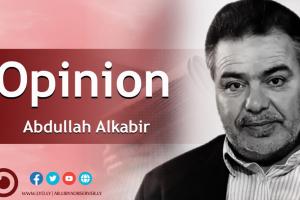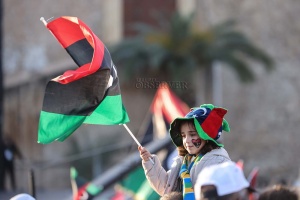By Abdullah Alkabir, Libyan political writer and commentator
What are chances of success of Election Law Committee 6+6?

The 6 + 6 Committee has held its first meeting in Tripoli, thereby declaring the response of heads of the House of Representatives (HoR) and the High Council of State (HCS) to the international moves, which has for long been urging them to quickly lay the constitutional basis for the elections, threatening to resort to "alternative" options in the event of continued procrastination and lack of achievement.
It is certain that this threat, conveyed by Western ambassadors to the heads of the two chambers, before the UN envoy Abdoulaye Bathily announced it in his briefing to the UN Security Council, is the most important factor, behind the response of the heads of HoR and HCS. Besides, the willingness of the United Nations and Western countries to accept what would be produced by the two chambers, conducive to elections. Even though with flawed legal procedures, as the UN envoy neither cared about the constitutional violations in terms of procedures pursued in issuing the 13th Amendment, and the appeals submitted to the Constitutional Chamber based on such violations, nor did he care or comment on the statements he received on refusal to pass this amendment at the HCS.
The international indifference to the objectors means that there is an international tendency to push the two chambers to complete the constitutional path, and at a later stage, the concerns of the objectors can be addressed through the steering committee to be formed by Bathily.
On the anniversary of the aggression of Haftar and his gangs on Tripoli, the UN envoy appeared at breaking the fast table of Haftar, accompanied by Aqila Saleh, and several pictures with high degree of intimacy for this meeting were circulating.
Victims of the aggression viewed such an appearance a provocation from the UN envoy, who should have respected this anniversary, by issuing a statement recalling the tragedies caused by the aggression, declaring UN solidarity with the victims, and not to show up with the criminal who was behind the aggression.
We are not certain, whether Mr. Abdoulaye Bathily paid attention to ‘April 4’ date, and what it represents in Libyans’ memory, or is he sticking with a strict schedule governing his meetings and travels, without much regard to the symbolic aspect of dates.
The aggression on April 4, undermined the United Nations and its prestige, because it took place while the UN Secretary-General was in Tripoli to provide support for the Ghadames Peace Forum.
Bathily is now fully aware of the political map, and the most influential forces of the Libyan political scene. Indeed, he is moving guided by such map, giving more value and weight to the leaders of the East rather than the West, because the former have almost absolute power with no significant opposition, and therefore there is no room for him to maneuver. Elections do not constitute a concern for those leaders, so either to be held with guarantees that they will retain power on their hands, or they will not take place, and this requires from him to seek the approval of those leaders if he wants success of his project.
The political landscape in the West is different, as many political forces unite in support of elections, and oppose any attempt to abort them, and they possess the tools of pressure, to limit the inclination of the head of HCS and the bloc supporting him, to make concessions to the Speaker of Parliament, in order to continue on the scene, by tailoring electoral laws that open the door for running for presidential and parliamentary elections without much conditions.
Time is running slowly for those eager to hold the elections, but it is accelerating for authoritarian elites who are compelled to prepare for them, and be prepare to resort to them, so that they can be held before the end of this year.
Despite the international pressure, and the possibility that some parties will intervene to influence them, it is not expected that the 6 + 6 committee will reach an election law acceptable to all parties, especially with the Speaker of the HoR abandoning his pledges to the head of the HCS during their joint statement, not to implement the law establishing a constitutional court, and publish it on the Official Gazette of the House of Representatives.
It seems, a solution sponsored by the United Nations is imperative, with only limited degree of powers to the HoR and the HCS, or to the committees emanating from them.
Disclaimer: The views and opinions expressed in this article are those of the writer, and do not necessarily reflect those of the Libya Observer



